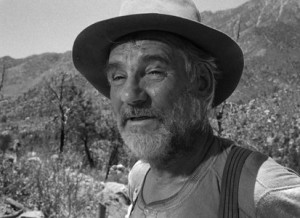There’s a man in London, an advertising exec, who talks in his sleep. His wife got a voice activated digital recorder so she could record what he says. Then she started putting those words on a blog that has well over a million hits now. You can read the story here.
He says things like, “Elephants in thongs are not something you see every day. Enjoy it.” Much of what he says is laced with profanity. He admits to being “pent up.” I’d say so.
There’s also a “sleep talkin’ theologian,” Dr. Fred Sanders of Biola University, who talks in his sleep. His wife jotted down many things he said during graduate school, mostly as he was in that phase of just waking up. Sometimes she would prod him with questions and, half asleep, he’d answer. Here are some of the transcripts:
Scissors
Coming after me
Walking on their hindquarters.
*
Taking a picture
Of those two foreigners,
And two others.
And mostly it’s us loading our camping equipment into the car
*
Sanctification
It’s like walking through the woods.
He tossed a coin, and I have to get the rest of the stick
*
I was in Esau’s soup.
He was going to eat me up.
[WIFE: how did you get out?]
You got me out.
[how?]
Cut up into little pieces.
*
More of the same.
A bunch of dull people.
There was a roller coaster right in the middle.
So what does any of this have to do with writing? A lot, if you’re attentive to it.
Dorothea Brande, in her well known book Becoming a Writer, advocates getting up in the morning and, first thing, jotting down what’s in the mind. It is here that rough gems are buried. The trick is to get them out, then choose the ones that are worth polishing.
Stephen King calls this phenomenon “the boys in the basement,” the writer’s mind and imagination working in the background.
It’s something to be nurtured.
Often when I’m in the middle of a novel, working out scenes to come, I’ll go to bed with a pad and pen on the table nearby and drift to sleep asking myself questions. Or I’ll create a scene in my mind and try to “fade out” with it playing.
Then, first thing in the morning, I’ll either jot something on the pad, or get my coffee and start typing the things that come to me.
Not everything is great. In fact, most of it isn’t. But quite often, stuck somewhere in the middle or down at the bottom, there’s gold. I try to find it and refine it and see what it’s telling me about my story.
There’s a great line in the classic movie The Treasure of the Sierra Madre. The old prospector, played by Walter Huston, is schooling two fortune hunters (Humphrey Bogart and Tim Holt) on the fine art of panning for gold. He puts some sand in a pan and pours water over it, then lazily manipulates the pan. Slowly, some flecks start to shine in the sun. He says that finding the gold takes patience. “You got to know how to tickle it so she comes out laughing.”
So here’s what to do, writer:
1. Tickle it. Be purposeful in the use of “the boys in the basement.” Ask yourself questions at night, or watch a scene as you drift off to sleep. Be ready to get to your keyboard or pad as early as possible the next day.
2. So she comes out laughing. Write for at least ten minutes, without stopping, letting the words and thoughts flow. Don’t try to be coherent. Go fast, putting down whatever comes to mind. If you get on an interesting tangent, follow it. See where it leads.
3. Refine it. Later in the day, go back to your notes and start culling for the good stuff. Highlight what you like. Keep these pages in a journal or e-file. At the very least you’re going to end up with an interesting diary of your imagination.
So what tricks or techniques do you use to tickle the gold, come up with ideas and get inspired by the muse?

